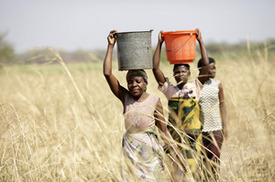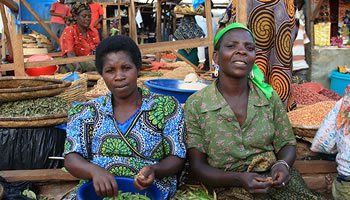 In this country of 13.1 million people, it is quite common for young girls between 15 – 19 to already have one or two children. Sometimes it is because they are married off at a very young age to men ten years or more their senior. Sometimes it is due to being sexually active before marriage, which while frowned upon, is a fact of life. Sometimes it is because of affairs with married men. And sometimes it is because of rape.
In this country of 13.1 million people, it is quite common for young girls between 15 – 19 to already have one or two children. Sometimes it is because they are married off at a very young age to men ten years or more their senior. Sometimes it is due to being sexually active before marriage, which while frowned upon, is a fact of life. Sometimes it is because of affairs with married men. And sometimes it is because of rape.
Bearing a lot of children is part of Malawi culture but this obviously puts the woman’s life at risk. With a low life expectancy of 53 years of age, a high infant mortality rate, unsafe abortions,as well as a high prevalence of HIV/AIDS, the government together with NGOs such as FPAM (Family Planing Association Malawi)have made maternal health a main priority.
This is the reason why we are here, four journalists and a photographer from different European countries, to learn about what is being done and to create more awareness about this important issue which is a key to reaching the objectives of Millennium Development Project 5 as set out by the UN.
As one of the officials we met this morning so eloquently put it, “do
women have to die in order to give life?”
It is a tired cliche but truly, education is the key. In a country which
is 80% Christian, girls die because of botched abortions – and the authorities have realised that while not legally available, abortions are taking place and they must address this issue through preventing unwanted pregnancies.
The girls and women have been specifically targeted through comprehensive sexual and reproductive health programmes both in schools and within the remote villages. Contraception is freely available and greatly encouraged especially because of HIV.
But educating women is not enough. Maternal health also means addressing the macho culture prevalent in Malawi of men wanting to sire a lot of children and thinking that pregnancy is “just women’s business”.
Perhaps one of the biggest breakthroughs by FPAM is that it is convincing men, especially in the rural areas, that by taking an interest in their wife’s maternal health it means that they are truly being responsible heads of the household. While before it was not considered ‘manly’ to accompany their wife to the health clinic now more and more men are shaking off this mentality…especially when they see their neighbour doing it.
Progress is being made slowly but surely: from bearing an average of 12 or more children, women are now having 6 or less. Men are being asked to join their wives during labour…to graphically bring home to them what the woman goes through. As the FPAM Executive Director Mrs Effie Pelekamovo told us this morning the direct approach is the best. “You say you want 12 children…do you really want her to go through this pain 12 times?”




No comments! Be the first commenter?